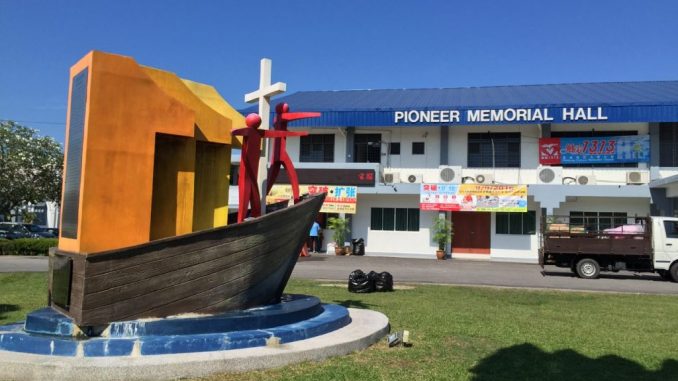
Have we ever wondered how Christianity began in Malaysia? We are born in an age where going to church is nothing foreign. In fact, we are spoilt with choices for churches here.
Yet, who is the one who left their own country to embark on a strange and foreign land, to a people they do not know?
Bernard of Chartres – a twelfth-century philosopher, scholar and administrator – once said we are like dwarfs standing on the shoulders of giants.
One of the ways Christianity reached Malaysia can be tracked back to Sitiawan. In 1903, pioneers Reverend H. L. E. Luering and Reverend Ling Ching Mi were sent by the Methodist Episcopal Mission to China to recruit poor villagers from Foochow to start a purposeful agricultural settlement in Malaysia.
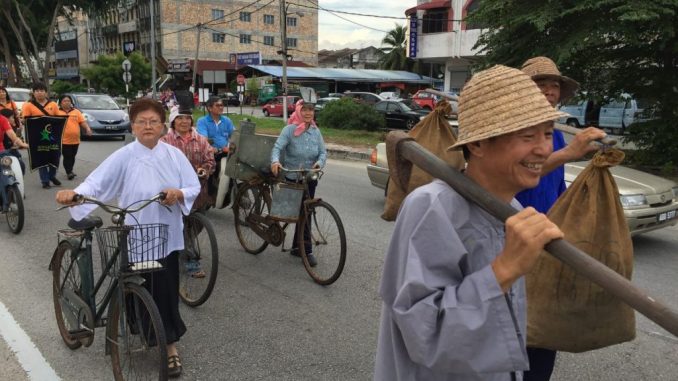
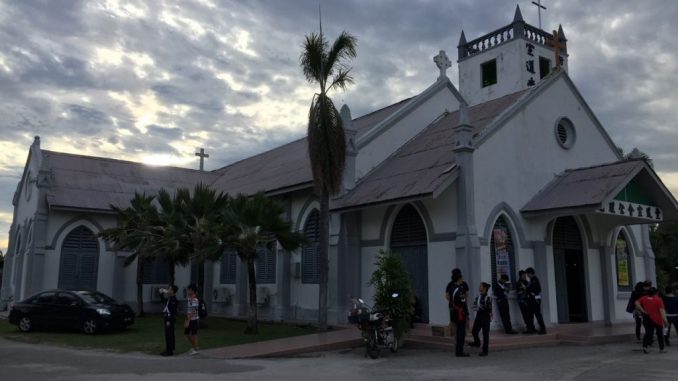
At that time, Malaysia was a safe haven for the Foochow people who were escaping the heavy persecution of Qings dynasty on Christians. With the help of Rev Huong Pau Seng, 484 people joined the mission settlement.
On 15th of August 1903, they boarded the S. S. Glenfalloch at Ma-Mui. Cholera broke out, taking more than 10 lives. Instead of feeling discouraged, the three reverends continued to show love and care, comforting the emigrants.
When the ship arrived in Singapore, another emigrant died. This caused every one on board to be quarantined at St John Island to be inspected and disinfected. From there, the emigrants left for mission settlement arrived in Sitiawan in batches.
From 9th of September to 17th of September, a total of 363 people landed in Sitiawan. Upon arriving, the emigrants were temporarily placed in seven long houses.

Six months later, three major groups were formed according to their clans to work on three different locations. As a result, the clan settlement of Kucheng (Kutian), Foochow and Hok-chiang (Fu-tsing) were established.
Under the British government at that time, reigning from 1903 till 1940, the pastors were empowered to be the leader of the community. Pastors were given the authority to sign land grants, build schools and lead rubber plantation projects on the lands.
Pioneer United Methodist Church, as the name suggested, is 113-year-old now. Located near the church was a well, known for its clean and pristine water. At that time Kampung Koh lacked clean drinking water as the topography of the area was low.
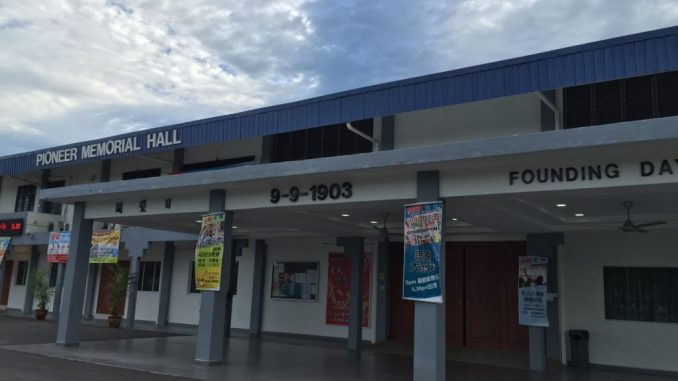
Many villagers would walk there every morning to collect water. Inevitably passing the pastors staying there, the place was eventually known as ‘mu-shi-lau’ or parsonage. The work started by the church eventually grew into the Kampung Koh today.
Nevertheless, although Sitiawan was known as the place where many pastors come from such as the former Senior Pastor Dr Daniel Ho of DUMC, many younger Foochows have left this place in search of greener pastures.
With such rich history, time has swallowed all of them. The sweat and blood of missionaries who gave their lives for us have been forgotten. What we have today is the result of old men planting trees whose shade they will never sit in.
Hence, when Reverend Liew Kek Ming was sent to serve in Pioneer Methodist church in 1997, he was surprised to find that no history was recorded for this work.
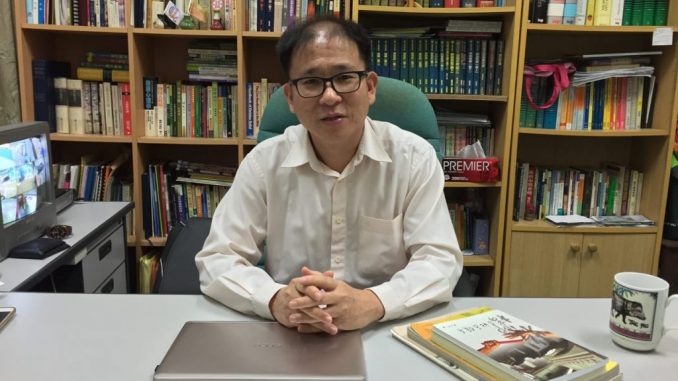
With an unquenchable drive to know the history, Reverend Liew found out that contrary to popular belief, the church began in 1903 instead of 1902.
On 9th of September 1999, Reverend Liew called a press conference to declare the official birthday of this church. Following the double tenth day or independence day in Taiwan, Reverend Liew dubbed this celebration as the double ninth day, uniting many churches to celebrate as one for the first time in Sitiawan.
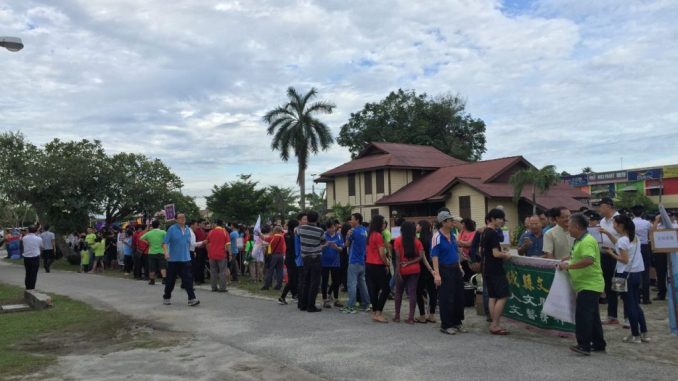
In 2003, the Chinese settlement in Sitiawan has reached its centenarian age. The 100-year celebration this time involves not only the churches but the non-religious Chinese organizations as well. At only 34 years old, Reverend Liew became the first chairman to be elected. Since then, the church has actively worked together with the Chinese organizations to impact the society.
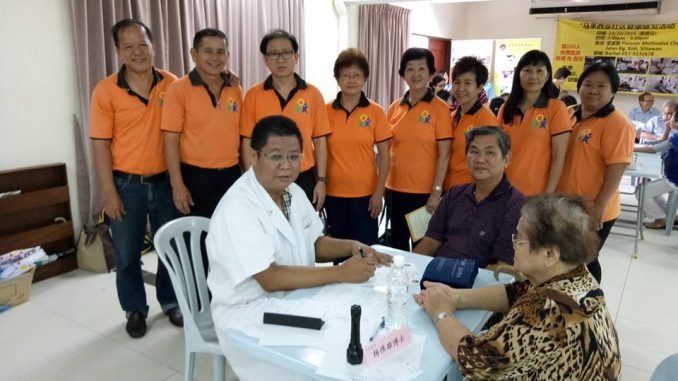
To get involved in the society, Reverend Liew has also founded Pertubuhan Kebajikan Harapan Baru Manjung to work with the locals there through his founded Manjung Chinese Christian Cultural Association. As the President and Chairman respectively for both organizations, Reverend Liew hopes to work as one unit for the betterment of the society.
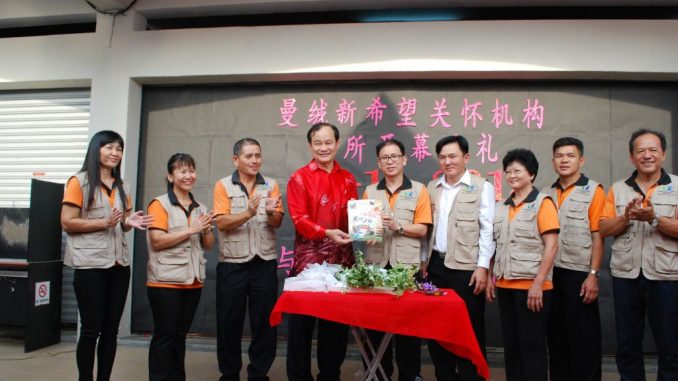
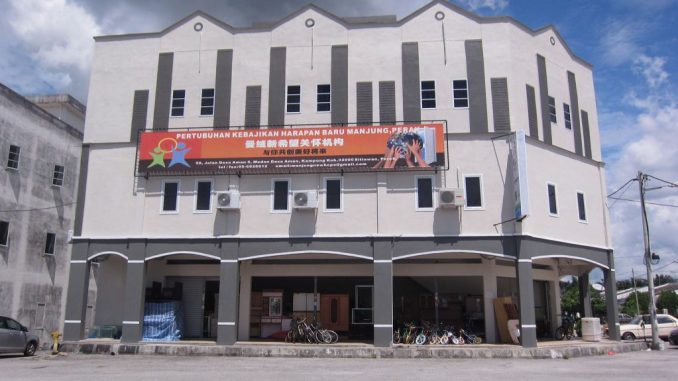
Projects done for the society by the churches and non-religious organizations in Sitiawan included blood donation events, school fun fairs and city parade walks. The recent city parade walk involved 30 churches and Chinese organizations in Sitiawan, where more than eight organizations were Chinese organizations.
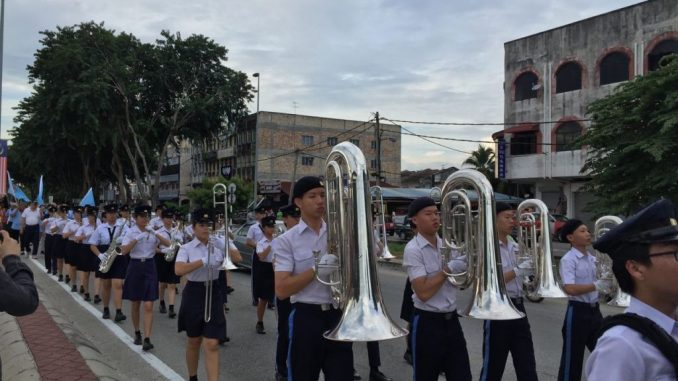
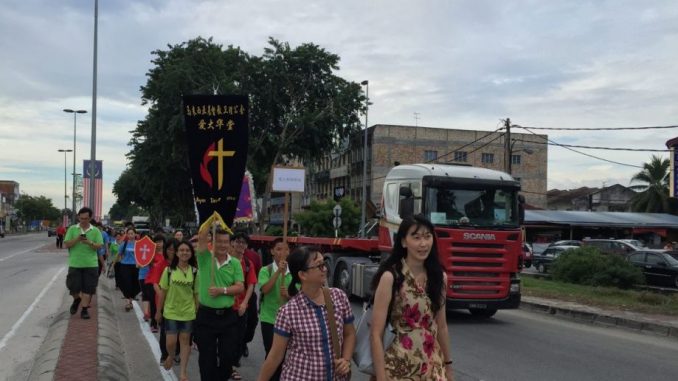
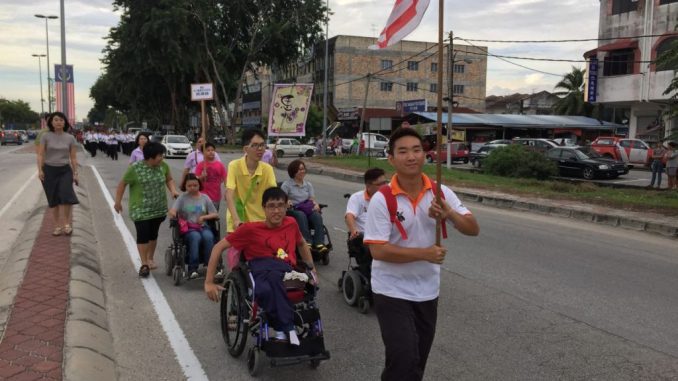
In 2003 as well, Reverend Liew headed a Sitiawan Settlement Museum of Foochow settlement in Sitiawan, drawing more than three thousand visitors annually to see its thousand-over items. This building was built in 1935 as a home for pastors. As the Chairman cum Curator, he is now leading a five-million ringgit project, where over 1.5 million ringgit had been collected over the years.
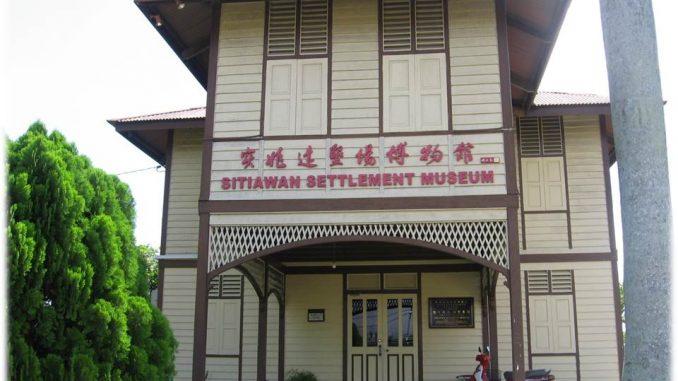

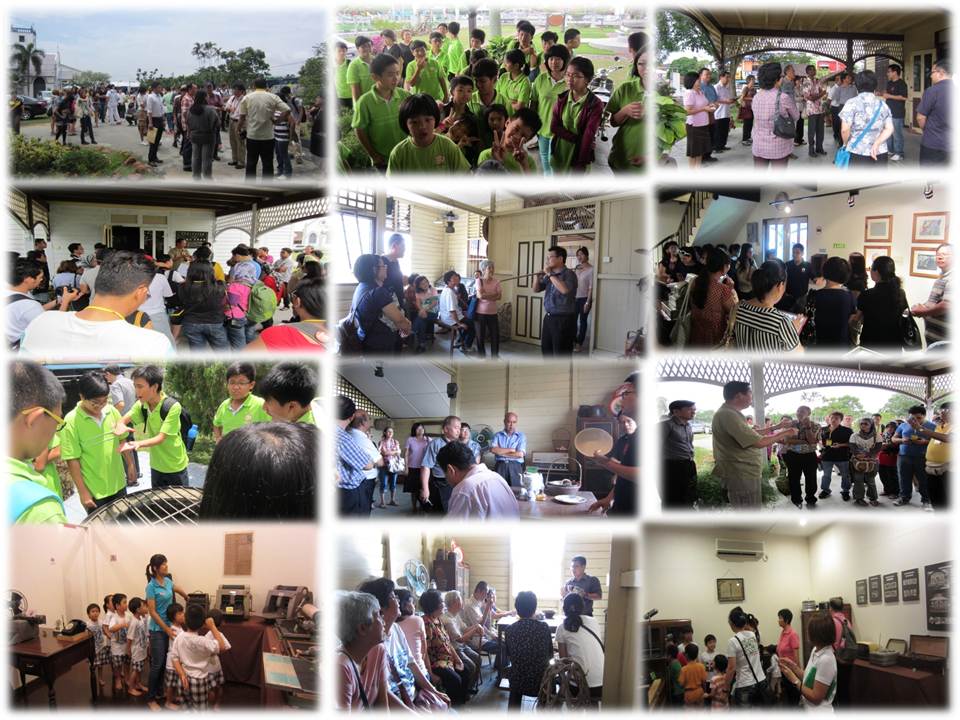
Answering the call of Acts 26:16 impressed by the Lord, Reverend Liew is relentless and steadfast in fulfilling God’s purpose for him. He dared not disobey the vision that came from Heaven.
But rise and stand on your feet; for I have appeared to you for this purpose, to make you a minister and a witness both of the things which you have seen and of the things which I will reveal to you. (Acts 26:16)
Because of the vision, he kept asking himself of the purpose of Pioneer Methodist Church in Sitiawan. The LORD asked him to go further, thus making the celebration of the Christian settlement in Sitiawan a yearly thing.
The first purpose of the church is to ‘infuse biblical values into the blood and veins of people’, through the presence of his monthly newspaper and museum. This process takes the longest time and is often unappreciated. But it is also the most crucial because minds must be transformed before the hearts are transformed.
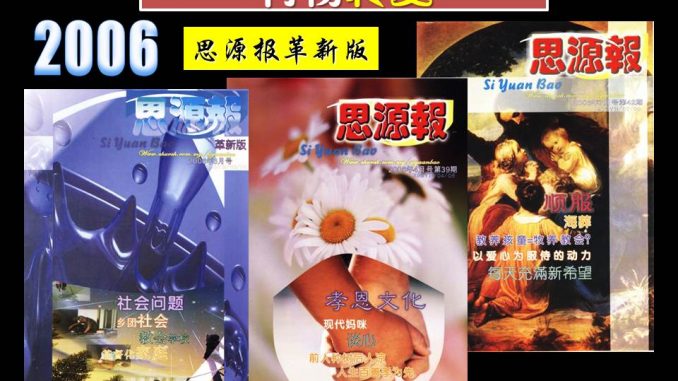
.jpg)
The second purpose is to plant gospel seeds into the hearts of people through the work of charity. This process is often more visible and appreciated, for the apparent good deeds shown.
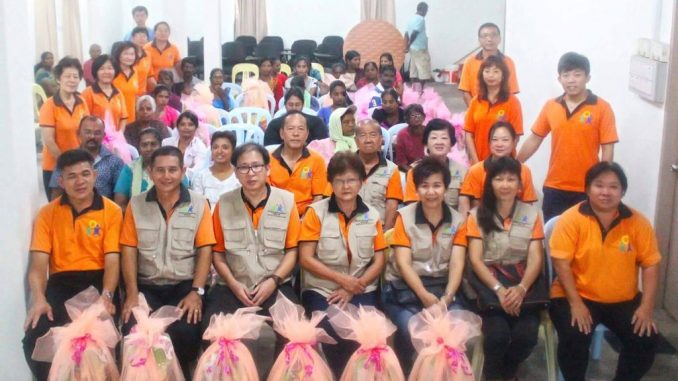
The third purpose is to water the seeds already planted through discipleship. This process is equally important especially for the early stages of a believer.
Given a vision in 2003, Reverend Liew looks forward to commemorate the works of the missionaries, building on their sweat and blood, every year for a long term. He lays hold of the vision he saw — a welcome signboard written ‘Bandar Kristian Sitiawan.’
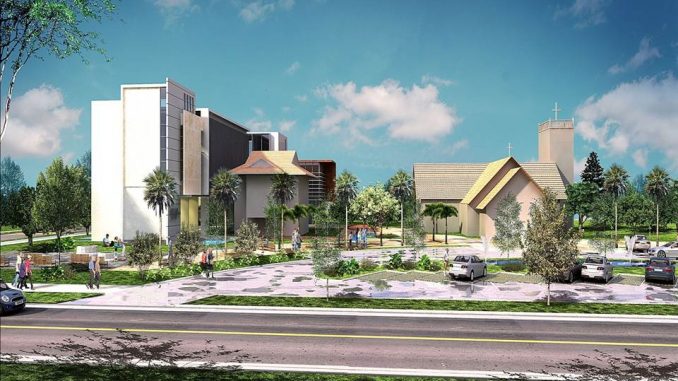
| Share the Good News |

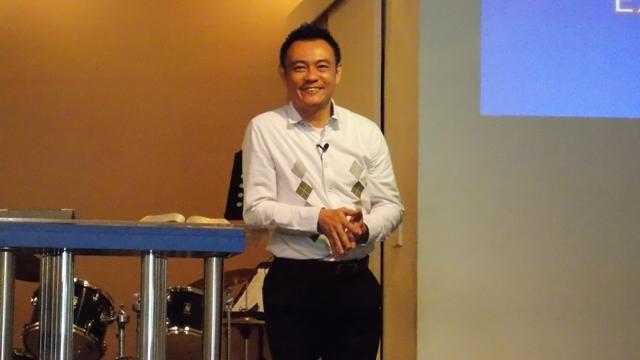


I am fascinated by this article and what Rev. Liew has been inspired to pursue. May God continue to guide him and his committee members in all their endeavors.
I am a Foochow from Sibu and lived for 4 years in the Methodist Children’s Home in Sibu where a Chinese doctor living next door used to come once a week to tell stories and sing or chant Foochow ballads. As someone who studied Ethnomusicology, I am curious to know if the museum has audio collections of sayings, songs, ballads, of those w ho still remember these.
What a pleasure to read about recent activities in SItiawan where I spent memorable years of my childhood as my parents served as missionaries there between 1936 and 1961.
Hi, Bonnie,
I was reading about the recent activities in Sitiawan and was pleasantly surprised to come across a comment by someone I know. It has been more than 70 years so I would be tickled pink if she also remembers that she and I were classmates (in Standards 1 and 2) at ACS-Sitiawan. At that time, I was known as Hong Tiong Sian and our teachers always addressed me as Hong. I left Sitiawan in December 1953 and completed my schooling at KGV in Seremban. After finishing our graduate studies in the US, Constance and I taught at University of Wisconsin-Stevens Point and, after our retirement in 2005, have resided in Silver Spring, Maryland where we help care for our 2 precious granddaughters. In fact, we have just taken them to school and shall pick them up after school.
Let me stop here and wish you all the best in the new year.
Marcus Fang (aka Hong Tiong Sian)
May the Lord bless the work of Rev. Liew and his Co-workers in the expansion of God’s kingdom in Sitiawan, a land that is fertile with good soil for Gospel seeds. All glory and honour to our Lord Jesus, the Alpha and the Omega.
I was searching for my family history in Sittiawan when I came across this article.
My grandfather and grandmother were recruited by a pastor to migrate to Malaya.They were Christians in China and young .My late dad reconfirmed just befire he died that his parents were invited to join a group of missionaries to come and their duty was to start a school.I was told that school started by my grandpa is still standing.Not sure whats the name.
What a rich Christian heritage I have and indeed God is fairhful as He has indeed blessed the progeny.